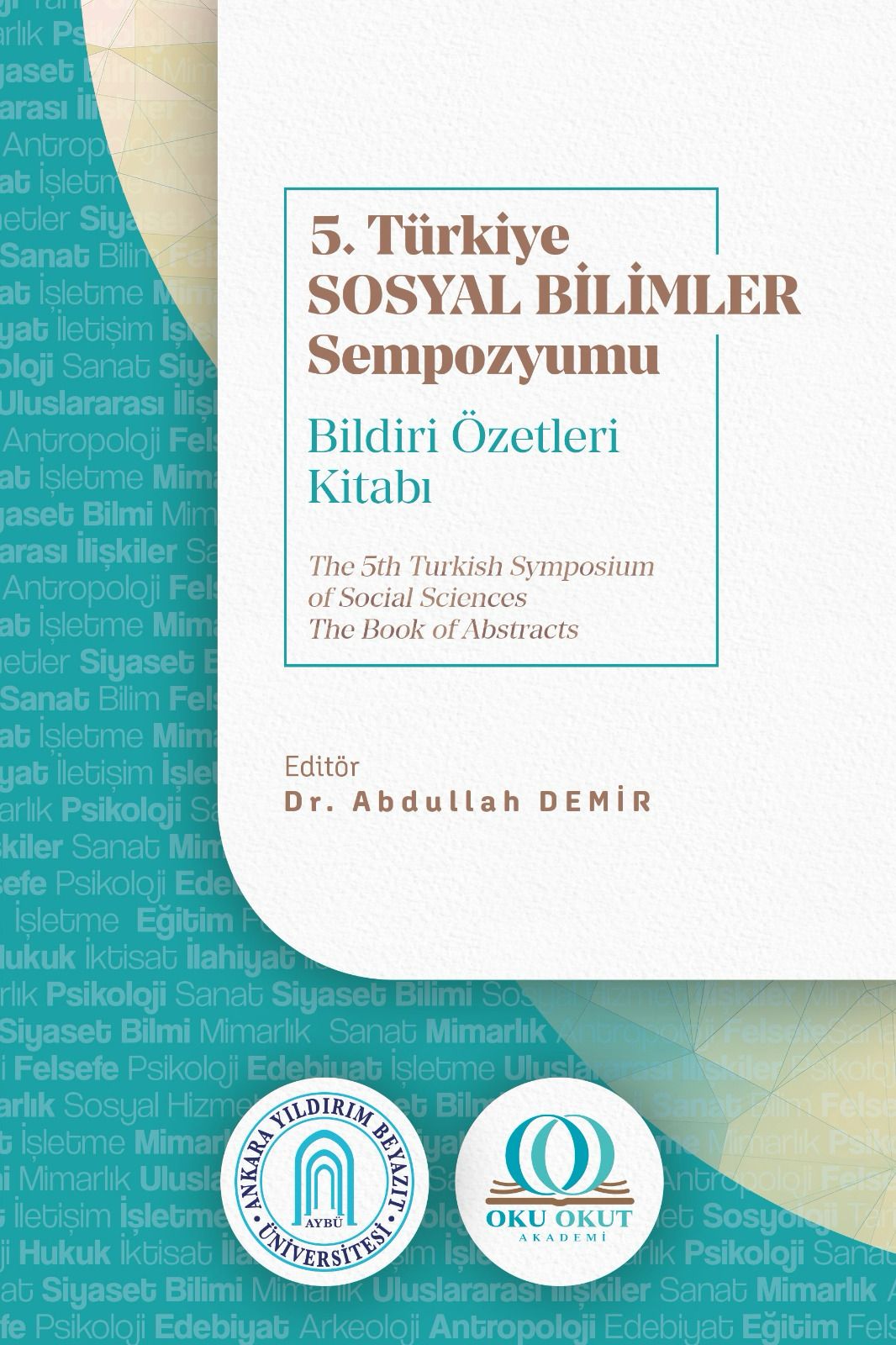The Self’s Quest for Meaning: A Dialogue Between Ibn Arabī and Modern Psychology
Benliğin Anlam Arayışı: İbn Arabî ve Modern Psikolojinin Diyaloğu
This study aims to impart a theocentric and metaphysical dimension to the phenomenon of the self, which is largely treated within a secular and anthropocentric framework by modern psychology, through the doctrine of the “Perfect Human” (al-Insān al-Kāmil) of Muhyiddin Ibn Arabī. The primary objective of the research is to demonstrate, through a comparative analysis, how Ibn Arabī’s conception of the human adds a teleological purpose and an ontological depth to the self-structures, developmental processes, and potentials described by modern psychology. To this end, a qualitative research design employing thematic and comparative content analysis has been adopted. Within this framework, key themes derived from Ibn Arabī’s primary texts—such as nafs (psyche/self), rūḥ (spirit), ʿishq (divine love), and maʿrifah (gnosis)—were analyzed alongside foundational concepts from psychodynamic, humanistic, and positive psychology schools, such as the ‘ego,’ the ‘Self,’ ‘individuation,’ and ‘self-actualization.’
The core findings of the research were identified along three main axes. Firstly, regarding the structure of the self, it was found that Ibn Arabī’s model of the nafs exhibits a strong structural analogy with Freud’s id-ego-superego model, and that the process of spiritual discipline (tazkiyat al-nafs) bears a deep procedural parallel to C.G. Jung’s theory of individuation. In this context, the Insān al-Kāmil was interpreted as a spiritual counterpart to the archetypal Self, which represents the integration of consciousness and the unconscious. Secondly, in the context of developmental motivation, the ‘divine love’ (ʿishq), which is the engine of the spiritual journey in Ibn Arabī’s thought, was identified as corresponding to the drive for ‘self-actualization’ in humanistic psychology. Furthermore, Maslow’s ‘peak experiences’ were determined to have a phenomenological affinity with the Sufi states of ecstasy (wajd) and gnostic unveiling (kashf). Thirdly, concerning the qualities of perfection, the moral virtues possessed by the Insān al-Kāmil (such as wisdom, justice, and compassion) were found to align with the universal character strengths defined by positive psychology. It was also ascertained that Ibn Arabī provides an ontological foundation for these virtues as reflections of the Divine Names (al-Asmāʾ al-Ḥusnā).
In conclusion, this study posits that Ibn Arabī’s metaphysical conception of the human is not merely an alternative to the models of the self in modern psychology, but rather complements them by offering a transcendent purpose, an ontological foundation, and a teleological direction. It has been demonstrated that this integrative reading prepares the ground for a more holistic psychology that comprehends the human person on both horizontal (psychosocial) and vertical (spiritual) axes.
Bu çalışma, modern psikolojinin büyük ölçüde seküler ve antroposentrik çerçevede ele aldığı benlik (self) olgusuna, Muhyiddin İbn Arabî’nin “İnsan-ı Kamil” (Yetkin İnsan) öğretisi üzerinden teosentrik ve metafizik bir boyut kazandırmayı hedeflemektedir. Araştırmanın temel amacı, İbn Arabî’nin insan tasavvurunun; modern psikolojinin tanımladığı benlik yapılarına, gelişim süreçlerine ve potansiyellerine nasıl teleolojik bir amaç ve ontolojik bir derinlik kattığını karşılaştırmalı bir analizle göstermektir. Bu amaç doğrultusunda, nitel araştırma desenlerinden tematik ve karşılaştırmalı içerik analizi yöntemi benimsenmiştir. Bu çerçevede, bir yanda İbn Arabî’nin temel metinlerinden türetilen ‘nefs’, ‘ruh’, ‘aşk’ ve ‘marifet’ gibi ana temalar, diğer yanda ise psikodinamik, hümanistik ve pozitif psikoloji ekollerinin ‘ego’, ‘Benlik (Self)’, ‘bireyleşme’ ve ‘kendini gerçekleştirme’ gibi temel kavramları analiz edilmiştir.
Araştırmanın temel bulguları üç ana eksende tespit edilmiştir. İlk olarak, benliğin yapısı incelendiğinde, İbn Arabî’nin nefs modelinin Freud’un id-ego-süperego yapısıyla güçlü bir yapısal analoji sergilediği ve nefs terbiyesi sürecinin C.G. Jung’un bireyleşme (individuation) teorisiyle derin bir süreçsel paralellik taşıdığı ortaya konulmuştur. Bu bağlamda İnsan-ı Kamil, bilinç ve bilinçdışının bütünlüğünü temsil eden arketipik Benlik’in (Self) manevi bir karşılığı olarak yorumlanmıştır. İkinci olarak, benliğin gelişim motivasyonu bağlamında, İbn Arabî’de ruhsal yolculuğun motoru olan “ilahi aşk”ın, hümanistik psikolojideki “kendini gerçekleştirme” arayışıyla; Maslow’un “zirve deneyimler”inin ise sufilerin vecd ve keşf halleriyle fenomenolojik bir yakınlık içinde olduğu belirlenmiştir. Üçüncü olarak, yetkinliğin nitelikleri açısından, İnsan-ı Kamil’in sahip olduğu ahlaki erdemlerin (bilgelik, adalet, şefkat), pozitif psikolojinin tanımladığı evrensel karakter güçleriyle örtüştüğü ve İbn Arabî’nin bu erdemlere, ilahi isimlerin (Esmaü’l Hüsna) birer yansıması olarak ontolojik bir temel sunduğu saptanmıştır.
Sonuç olarak bu çalışma, İbn Arabî’nin metafizik insan tasavvurunun, modern psikolojinin benlik modellerine yalnızca bir alternatif olmadığını, aksine bu modellere aşkın bir amaç, erdemlere ilahi varlıkta bir köken ve teleolojik bir yön sunarak onları tamamladığını ortaya koymaktadır. Bu entegratif okumanın, insanı hem yatay (psikososyal) hem de dikey (manevi) eksenlerde kavrayan daha bütüncül bir psikolojiye zemin hazırladığı gösterilmiştir.

Copyright (c) 2025 Nedim Havle (Yazar)
This work is licensed under a Creative Commons Attribution-NonCommercial 4.0 International License.
The CC BY-NC 4.0 license permits sharing, copying, and reproducing the work in any medium or format; it also allows adapting, transforming, and building upon the material, provided that appropriate credit is given to the original work and that it is not used for commercial purposes.
Article Information
- Article Type Psychology
- Submitted July 7, 2025
- Accepted August 5, 2025
- Published November 29, 2025
- Issue The 5th Turkish Symposium of Social Sciences
- Section Psychology
- Categories
Havle, Nedim. “The Self’s Quest for Meaning: A Dialogue Between Ibn Arabī and Modern Psychology”. Turkish Symposium of Social Sciences 5 (November 29, 2025). https://doi.org/10.55709/tsbsdergisi.696






